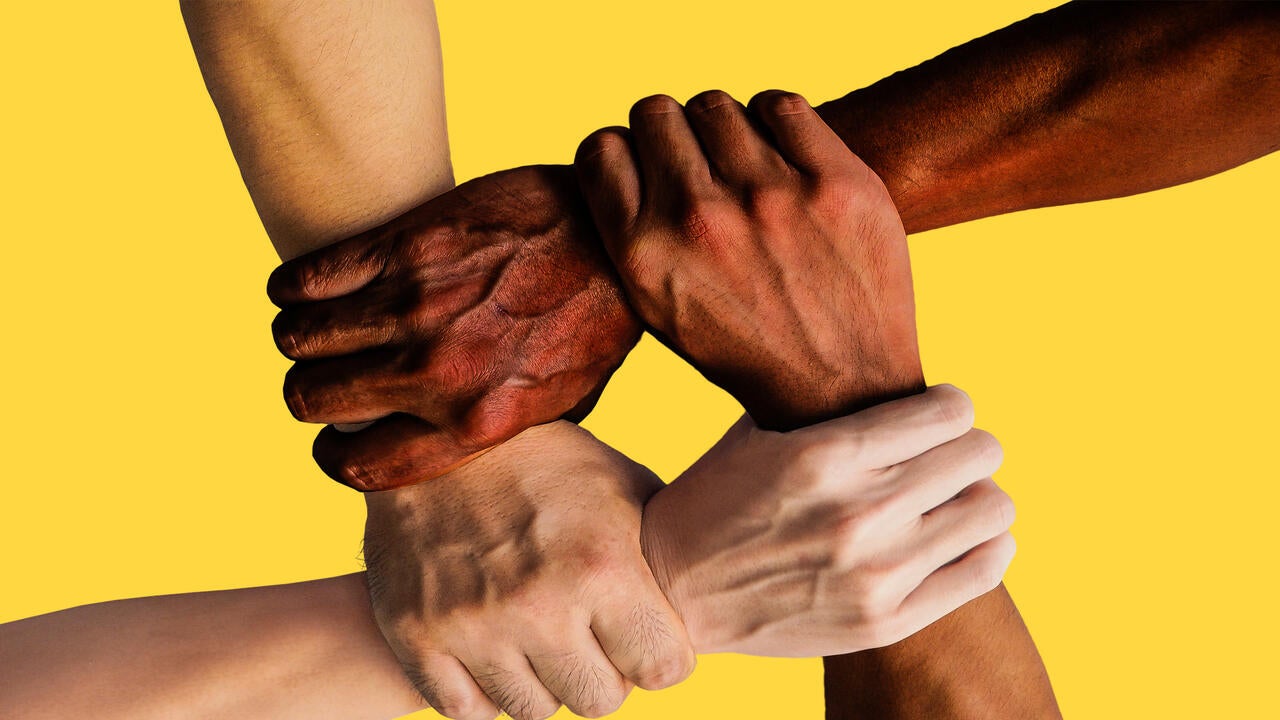
Students and employees to lead campus-wide anti-racism efforts
Membership of the President’s Anti-Racism Taskforce

Membership of the President’s Anti-Racism Taskforce
By University RelationsLast Friday, President Hamdullahpur announced the full membership of the President’s Anti-Racism Taskforce (PART). Comprised of mainly Black, Indigenous and People of Colour (BIPOC) from the University community, the taskforce will present recommendations for widespread and tangible change at Waterloo with respect to anti-racism and diversity.
“When I announced my intention to form the President’s Anti-Racism Taskforce, I knew that addressing racism on campus needed us to amplify the voices of BIPOC individuals and for those individuals to be the guiding hands of this work,” said Feridun Hamdullahpur, president and vice-chancellor. “It was critical for us to take time to hear and understand their experiences in the context of this University, and ensure their concerns were reflected in all of the actions we would endeavor to take in addressing systemic racism.”
The taskforce is comprised of individuals who will connect and structure recommendations from five PART working groups into an overarching framework for addressing anti-racism and for building inclusivity at the University.
The working groups are structured based on the input from BIPOC members of the University community. The working groups will make recommendations on a range of topics including Health and Mental Health; Professional & Academic Development & Mentorship; Race, Culture & Ethnicity Awareness; Educational Environment & the Development of Learners; and Safety. These recommendations will be brought forward to the taskforce for consideration.
Four implementation teams were also established to begin immediate action in the areas of Campus Representation; BIPOC Related Programming; Race, Culture & Ethnicity Awareness; and Race-Based Data Strategies.
“Since late August, I have been working with the community of campus members who expressed interest in the University’s anti-racism work, mainly BIPOC individuals, who would be a forum for discussion related to our efforts on anti-racism,” said Charmaine Dean, PART Executive Designate. “Their opinions, enthusiasm, expertise and experience have paved the road thus far. BIPOC leaders have stepped forward from this group to help shape a blueprint for what a supportive and inclusive UWaterloo community would look like. I have been truly privileged to be involved in this work, because I have seen so many of those individuals step forward to help navigate this change.”
Members of the taskforce, working groups, and implementation teams who are taking on this extra effort will be supported.
“Over October, the community also provided input to develop and shape the key responsibilities of the working groups, and then in November identified in which of these working groups members would participate. All members of the community forum will be consulted as the work moves forward. Hence the work to date has provided an excellent starting point for the deliberations of the working groups,” said Dean. “Our goal is to weave inclusivity into the fabric and culture of all campus operations, communities, pedagogy and lifestyles. We will also ensure BIPOC voices are at the centre of the anti-racism work.”
Those university community members who have been meeting to establish PART since September in the community forum have been dubbed the “Community Colaborative.”
“I am one voice of many in our BIPOC community, and grateful for the opportunity to make meaningful change at Waterloo", said Nigel Henriques, Taskforce and Community Collaborative member. “While it is early days in the process, a series of important steps were necessary to get us started. First, the university had to acknowledge that there are problems and that the institution was behind its peers in taking steps to address systemic racism. Secondly, it was important to listen to concerns, experiences, and feedback from our BIPOC community of students, faculty, and staff. That feedback has helped to identify priorities, organize our efforts, and create a path forward that is clear, actionable, and guided from a grassroots level. Finally, it required mobilizing experienced and expert BIPOC voices to form teams that would focus on the various thematic topics. The institution must be committed to supporting these teams by providing the appropriate resources to produce tangible recommendations that will lead to meaningful changes to address systemic racism and create a more inclusive UWaterloo community.”
The taskforce and working group members echo the commitment of the university to be transparent and open with its ongoing efforts, and to continue to collect feedback as milestones are met. The anti-racism website will continue to be a hub for information sharing, resources, and updates on this work in the coming months.

Read more
Announcement from Feridun Hamdullahpur, president and vice-chancellor

Read more
President announces initial eight commitments following weeks of consultation

Credit: Jacqueline Foster, CTV News
Read more
A team of Waterloo researchers uses virtual reality storytelling as a tool for reconciliation
The University of Waterloo acknowledges that much of our work takes place on the traditional territory of the Neutral, Anishinaabeg, and Haudenosaunee peoples. Our main campus is situated on the Haldimand Tract, the land granted to the Six Nations that includes six miles on each side of the Grand River. Our active work toward reconciliation takes place across our campuses through research, learning, teaching, and community building, and is co-ordinated within the Office of Indigenous Relations.